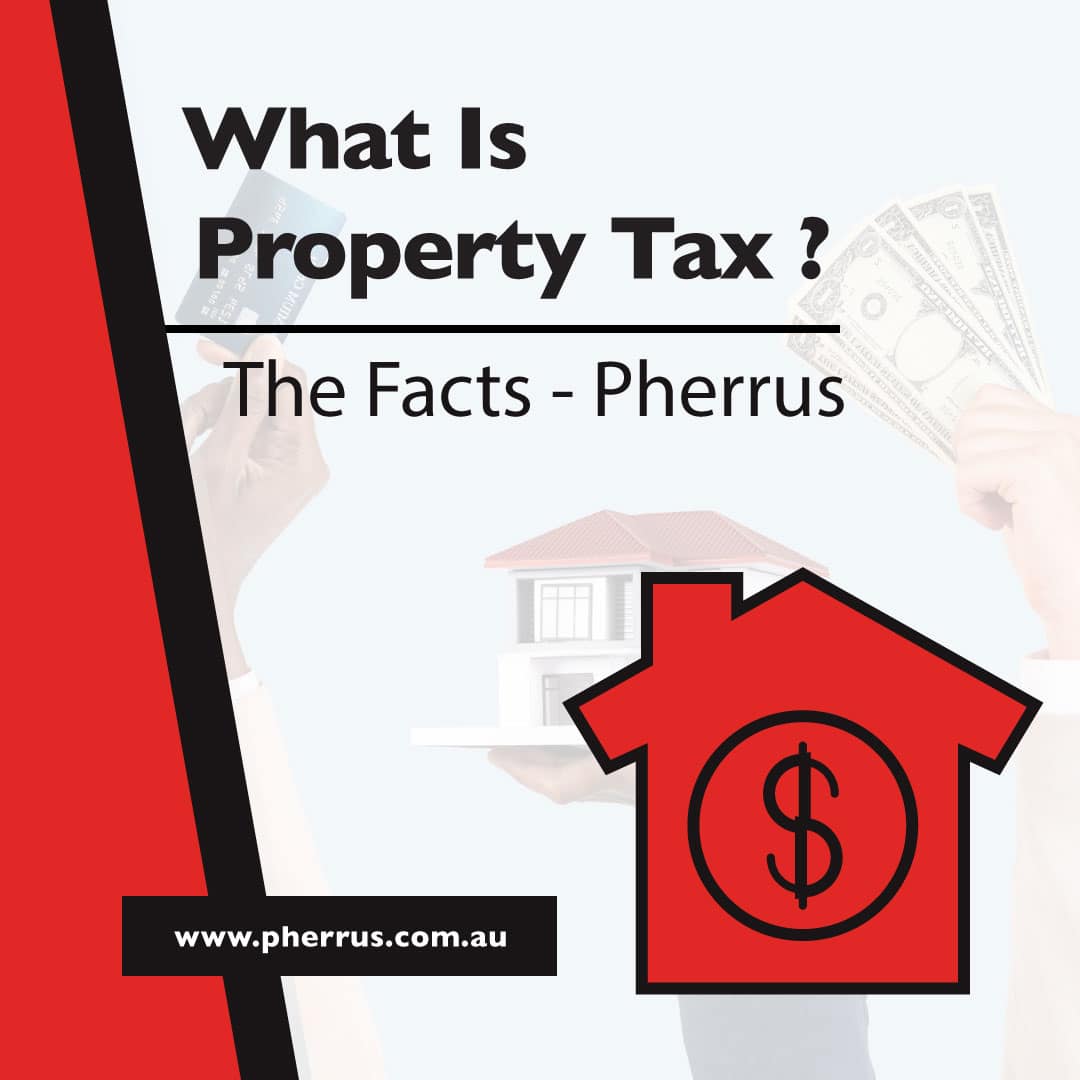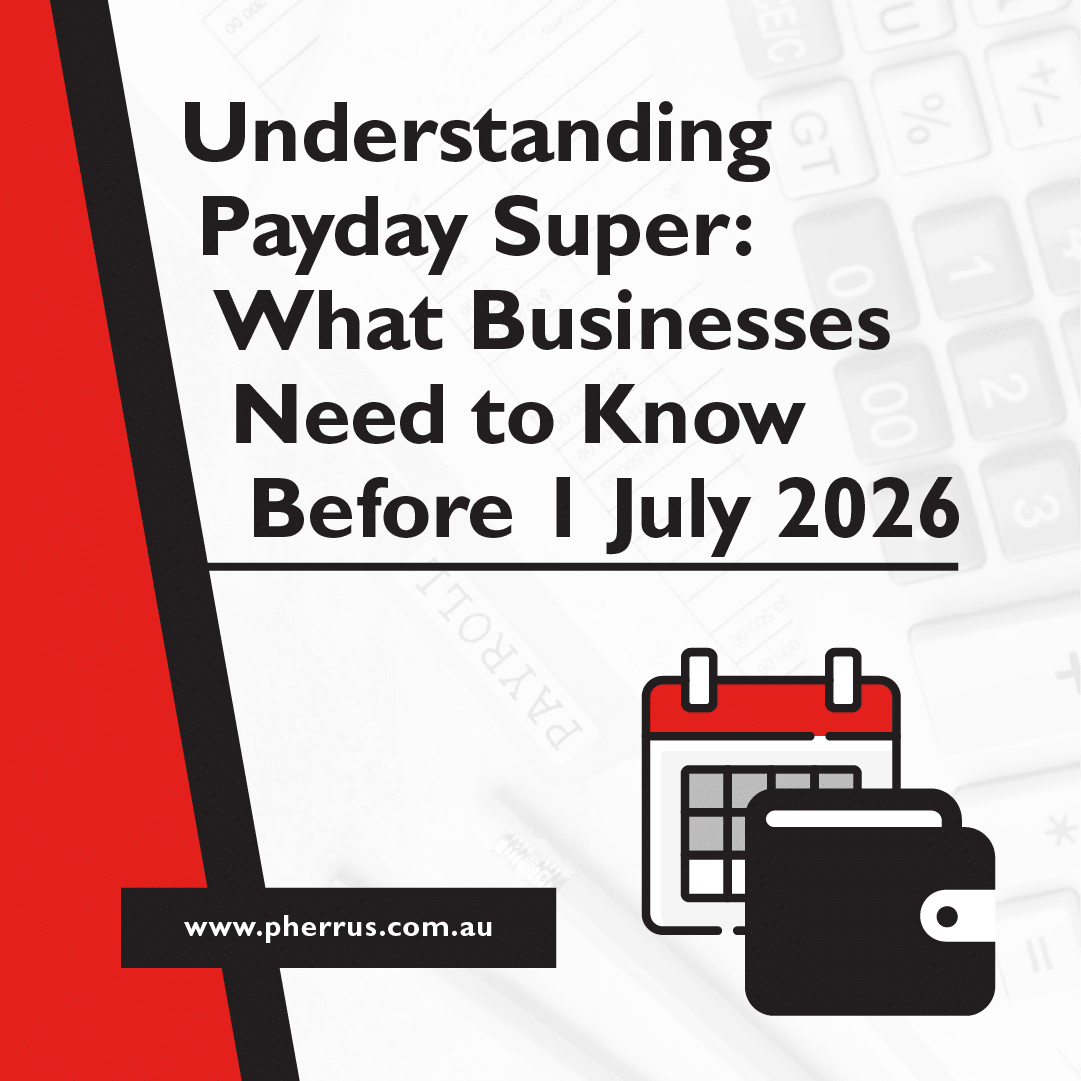
Imagine you’ve just invested in a property with the plan to develop it and sell it on for a profit, when you’re asked to pay goods and services tax.
Australia doesn’t have a universal “property tax”, rather, there are many sorts of taxes that apply to different circumstances.
If you’re buying, selling, investing, or simply owning land, the sort of tax you’ll pay will be specific to your situation.
With so many tax varieties, requirements and rules out there, navigating the world of property tax can be difficult and even confusing.
We’ve put together this handy guide to answer the question ‘what is property tax in Australia?’ and to determine what might apply to you and your property.

What types of properties and deals are taxed?
You’ll need to pay different sorts of tax on the following properties.
Your home
While you will need to pay transfer duty – formerly known as stamp duty – when you buy a home, you may be exempt from paying capital gains tax (CGT) if your home has been your and your family’s main residence for as long as you’ve owned it.
It’s likely you’ll also be exempt from any CGT when you sell, too.
Residential rental property
If you own a rental property, you may be able to claim tax deductions on loans, rates, maintenance, capital works, and borrowing expenses – but it’s important you do your research to be sure of your particular entitlements.
Vacant land and subdividing
Any vacant land is usually regarded as a capital asset and therefore subject to CGT.
If you subdivide your land, the original parcel becomes two assets that attract CGT when they are sold.
Property development
If you’re building or renovating a property, you may need to register for goods and services tax (GST) if the turnover from your transactions is greater than the threshold and your work is viewed as an enterprise.
You may need to pay this GST when your property is sold.
Business property
If you’re the owner, landlord or tenant of business property, you must declare any rental income and may be able to declare tax deductions on some property expenses.
If there’s any capital gain when you sell, you’ll need to pay CGT – and you may need to register for GST if you are viewed as conducting an enterprise and receive a turnover higher than the threshold.
Holiday homes
If you own a holiday home, you’ll only be able to claim tax deductions during the time in which your home is rented or available for lease.
If you don’t rent the property, you may need to pay CGT when it comes time to sell.
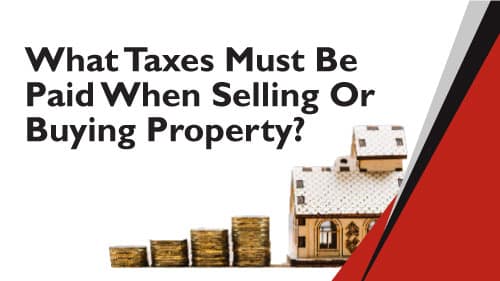
What taxes must be paid when selling or buying a property?
When you sell or buy a property, you may be subject to different taxes.
Income tax
Income tax is paid on anything you earn over the tax-free threshold, which currently sits at $18,200. Paying income tax might apply in the case of rental properties.
It’s crucial you declare any income you receive from your tenant, either as cash or as goods and services, and any payments you receive in the course of operating a rental.
These might include fees you keep when renters or holiday-makers cancel an accommodation booking, any insurance payouts after a damage or disaster claim, and any payments for deductible expenses.
Capital gains tax
Capital gains tax features as part of your income tax.
It applies when any property sale generates a profit.
If you’re determined to have a capital gain, the amount of tax you’ll need to pay will increase.
Vacant and subdivided land is commonly subject to capital gains tax as it is viewed as an asset.
Goods and services tax
Broadly speaking, goods and services tax is a 10% tax incurred on goods, services and other items sold within Australia.
Depending on the type of property you own, and on how it’s used, you may be required to pay goods and services tax.
GST is usually not required if you’re building or selling your family home, or if the rent you receive from your property is residential.
If you receive a turnover from any property transactions above the GST threshold, and if your activities – such as buying land with the view to developing – are viewed as an enterprise, you will need to register for GST.
This might apply to you even if you’re not operating as a business, so it’s important you are aware of the particular requirements and how you might be affected.
If you do need to register for goods and services tax, you will require an Australian business number (ABN).
If you don’t register for GST when required, you may still end up needing to pay GST on any sales made after the date you needed to register.
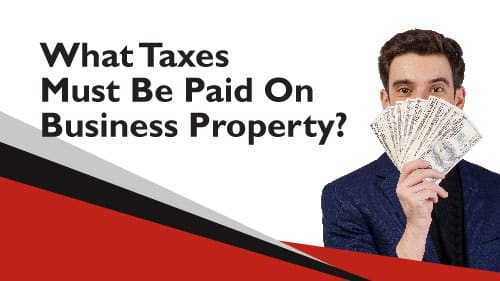
What taxes must be paid on a business property?
Business properties are subject to several types of tax.
Stamp duty
Stamp duty, transfer duty, or duty is paid in the event of a transaction, such as a property sale.
If your business has invested in a property, you will be required to pay stamp duty to the government in your state or territory. It’s important to note that the stamp duty rates and rules are governed by individual states, so you’ll need to be aware of what applies to your particular location.
If you inherit the property, or the property has been transferred to you from your spouse or partner, you may be able to claim an exemption.
It’s crucial you are aware of the particular requirements of your relevant government.
Rates
Rates are charged by local governments on the properties within their area.
You’ll likely receive a rates bill if your business owns property.
And there’s no flat rate you’ll need to pay – the amount you’ll incur will depend on your property value, which can depend on your particular local council.
You may also find yourself subject to different types of rates, including general rates, rates on utilities such as gas, stormwater or waste management, and one-off charges or special rates.
Your council will use the rates it receives to keep itself running and to maintain particular amenities, including roads, kerbs, parks, immunisation, libraries, planting of trees, and eradicating pests.
Land tax
Land tax is charged by your state or territory government on an annual basis, and it’s likely you’ll incur a land tax charge if your business owns property.
The amount of tax you’ll find yourself needing to pay will depend on the combined unimproved value of the taxable property you own, though this generally doesn’t include your main home or permanent residence.
When paying land tax, it’s important you’re aware of the particular regulations of your state or territory government, and of what you’re entitled to.
Some organisations such as aged care or supported accommodation facilities may be exempt from land tax.
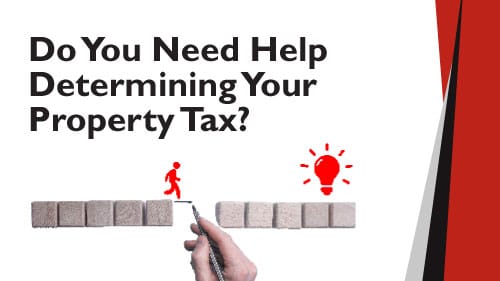
Do you need help determining your property tax?
Property tax is something we’ll all need to pay, and when the time comes, it’s important you’re aware of what your requirements and rights are as a property owner or investor.
Depending on the type of property you own, are purchasing, or are planning to sell, you may find yourself subject to tax payments.
If you own property as part of a business, transfer tax, rates and land tax will apply, but these amounts are determined at the local and state government level.
With so much to take in, it’s not always easy to know what property taxes you may incur.
That’s where Pherrus comes in.
Based in Sydney, we’re a highly-experienced team of accountants, agents, tax lawyers and consultants committed to ensuring you receive honest, individual advice and achieve the best financial results for your circumstances.
When you meet with us, we’ll take the time to hear your goals and plans to ensure we develop the right strategies to help keep your tax payments at a minimum.
With our friendly, professional multi-disciplinary team, you won’t need to go anywhere else for your tax or financial advice.
Put yourself and your financial future in great hands with Pherrus. Contact us today on (02) 9099 9109.


